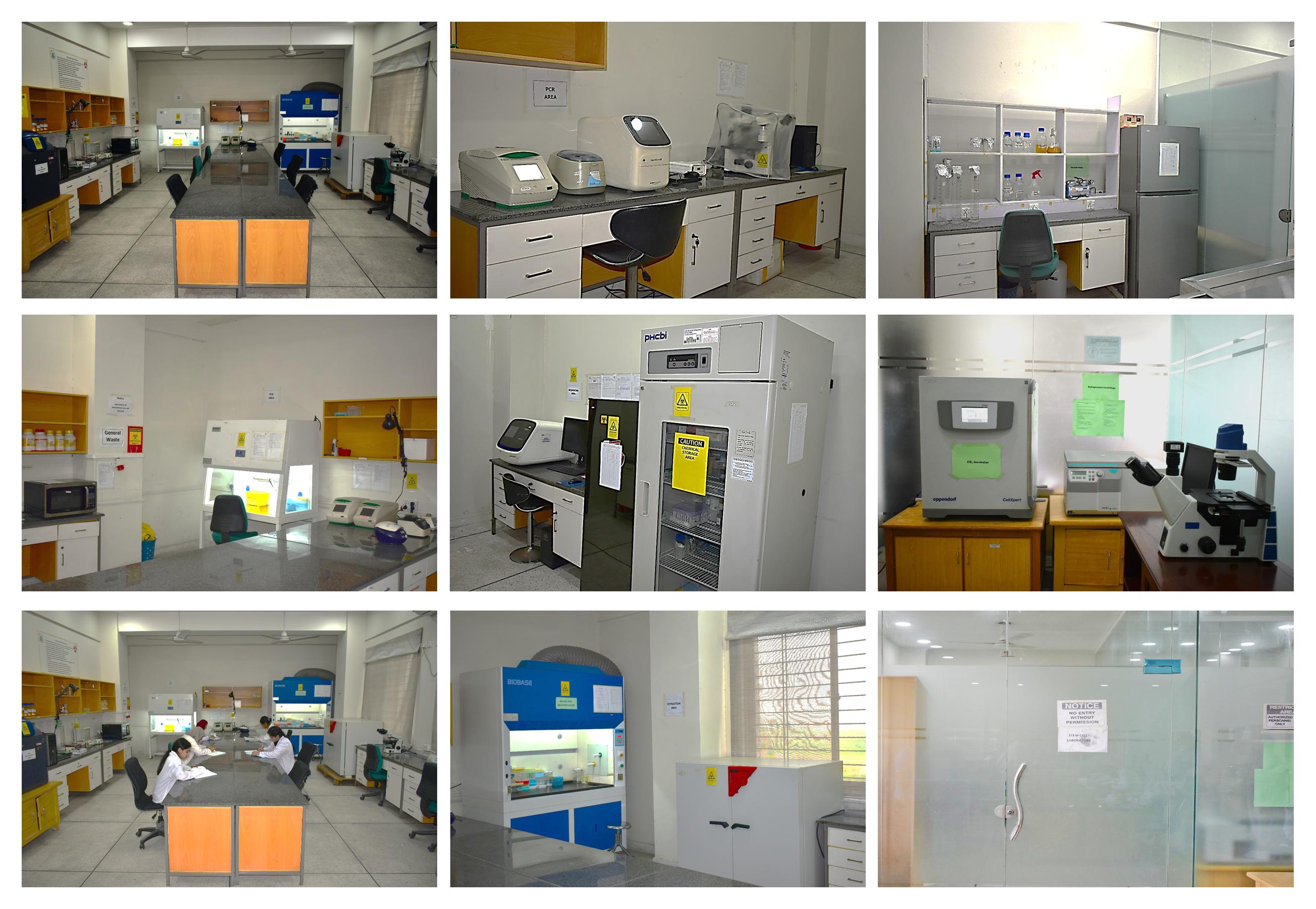
Department Introduction:
The Department of Human Genetics and Molecular Biology was established on June 12, 2007, with a clear and forward-looking mission: “to explore the vast landscape of human genetic diversity, investigate genetic disorders, and understand population ecology across diverse ethnic groups”. Since its inception, the department has grown into a center of academic excellence and scientific innovation, playing a pivotal role in advancing research, education, and clinical application in the fields of genetics and molecular biology.
From the beginning, the department was envisioned as a hub for developing highly skilled professionals who can contribute meaningfully as medical educators, researchers, and genetic counselors. Academic and training programs of the department are precisely designed to provide a robust and in-depth understanding of human disease genetics and molecular biology. The curriculum is designed to keep balance between foundation knowledge and emerging scientific methodologies, offering a blend of theoretical and hands-on learning experiences. Emphasis is placed on mastering the advanced research techniques and state-of-the-art molecular tools, ensuring students are equipped to tackle real-world biomedical challenges. Through structured coursework, intensive laboratory sessions, and mentorship in research communication, students are prepared not only to generate knowledge but also to disseminate it effectively. Graduates of the department emerge as independent investigators, proficient educators, and influential leaders in academic, clinical, and research environments.
Currently, the department offers a full spectrum of academic programs, including Bachelor of Science (BS), Master of Philosophy (MPhil), and Doctor of Philosophy (PhD) degrees in Human Genetics and Molecular Biology. These programs are designed with a keen interest in understanding the genetic underpinnings of human health and disease along with the tools necessary to make meaningful contributions to science and medicine. In support of its research and training goals, the department is equipped with modern, well-resourced laboratories featuring capabilities in genetic sequencing, stem cell culture, oncology and experimental molecular biology. These facilities enable faculty and students to engage in high-impact research projects aimed at understanding complex genetic disorders, developing novel diagnostic tools, and exploring therapeutic interventions. By integrating classical genetics with modern molecular biology, the department is bridging the gap between fundamental science and clinical application. The working domains of the department supports the development of personalized medicine, enhances disease prevention strategies, and contributes to the global effort to understand and treat genetic diseases. Ongoing efforts of the department to train the next generation of geneticists, explore the intricacies of human biology, and translate scientific knowledge into practical healthcare solutions making it an indispensable contributor to the fields of biomedical science and human health.
Vision Statement
To investigate genetic diversity and diseases, translate discoveries into clinical solutions, and educate future leaders in genetics and molecular biology through innovative research, hands-on training, and a deep commitment to human health.Mission Statement
Our mission is to advance the understanding of human genetics and molecular biology through innovative research, hands-on training, and clinical translation. We are committed to exploring genetic diversity, uncovering the causes of rare and complex diseases, and training the next generation of scientists, educators, and genetic counselors. Guided by curiosity, integrity, and compassion, we aim to bridge science and society to improve human health and empower personalized, equitable medical care.
Courses Offered
Title of the program: BS Human Genetics and Molecular Biology Duration: 4 Years (08 Semesters) Outline of the program
Human Genetics and Molecular Biology program at UHS offers a Bachelor of Science degree upon completion of a 4-year curriculum taught in English. Students are mainly educated in molecular biology and various fields of genetics. In addition, courses include diversified fields of biology such as immunology, physiology, microbiology, pharmacology, oncology, epidemiology and bioinformatics. Students are introduced to general and foundation courses of genetics and molecular biology. The specialized courses provide in-depth knowledge in various aspects of genetics and molecular biology, both in theory and in practice through laboratory experience. The curriculum includes both basic and clinical research training including molecular biology techniques (PCR, sequencing, expression studies etc.), cell culturing, population genetics and disease genetics. Available laboratory facilities cover important techniques comprising genomic extraction, conventional and real-time PCRs, cloning, blotting, electrophoresis and pedigree analysis etc.Title of the program: M.Phil. Human Genetics and Molecular Biology Duration: 2 Years (04 Semesters) Outline of the program
The M.Phil. program in Human Genetics and Molecular Biology aims to develop skilled professionals with a strong foundation in both basic and clinical genetics. The program emphasizes high-quality teaching, hands-on laboratory training, and research in genetic mechanisms, disease pathology, and molecular diagnostics. Students engage in coursework, journal clubs, seminars, and scientific projects to enhance theoretical knowledge and research interpretation skills. The program fosters critical thinking, practical expertise in genetics and collaborative research with national and international institutions. Graduates are prepared for roles in academia, diagnostics, research and healthcare, contributing meaningfully to science of genetics and patient care.Title of the program: M.Phil. Human Genetics and Molecular Biology Duration: 3 Years Outline of the program
The PhD program in Human Genetics and Molecular Biology provides advanced training in genetic and molecular research, focusing on understanding hereditary diseases and cellular mechanisms. The first year includes intensive coursework in research methodology, biostatistics, laboratory techniques, and subject-specific modules. Students also participate in seminars and journal clubs. After coursework, students select a supervisor, submit a research synopsis, and develop skills in scientific writing and grant applications. The second and third years are dedicated to independent research. The program fosters academic excellence, innovation, and collaboration, preparing graduates for impactful careers in academia, research, clinical genetics, and biotechnology.Courses Offered
| Title of the Program | Duration | Outline of Program | Link to Detailed Syllabus |
|---|---|---|---|
| BS Human Genetics and Molecular Biology | 4 Years | As mentioned above | https://uhs.edu.pk/BS-Genetics&MolecularBiology.php |
| MPhil Human Genetics and Molecular Biology | 2 Years | https://uhs.edu.pk/pg-PostgraduatePrograms.php | |
| PhD Human Genetics and Molecular Biology | 3 Years | https://uhs.edu.pk/pg-PostgraduatePrograms.php |


